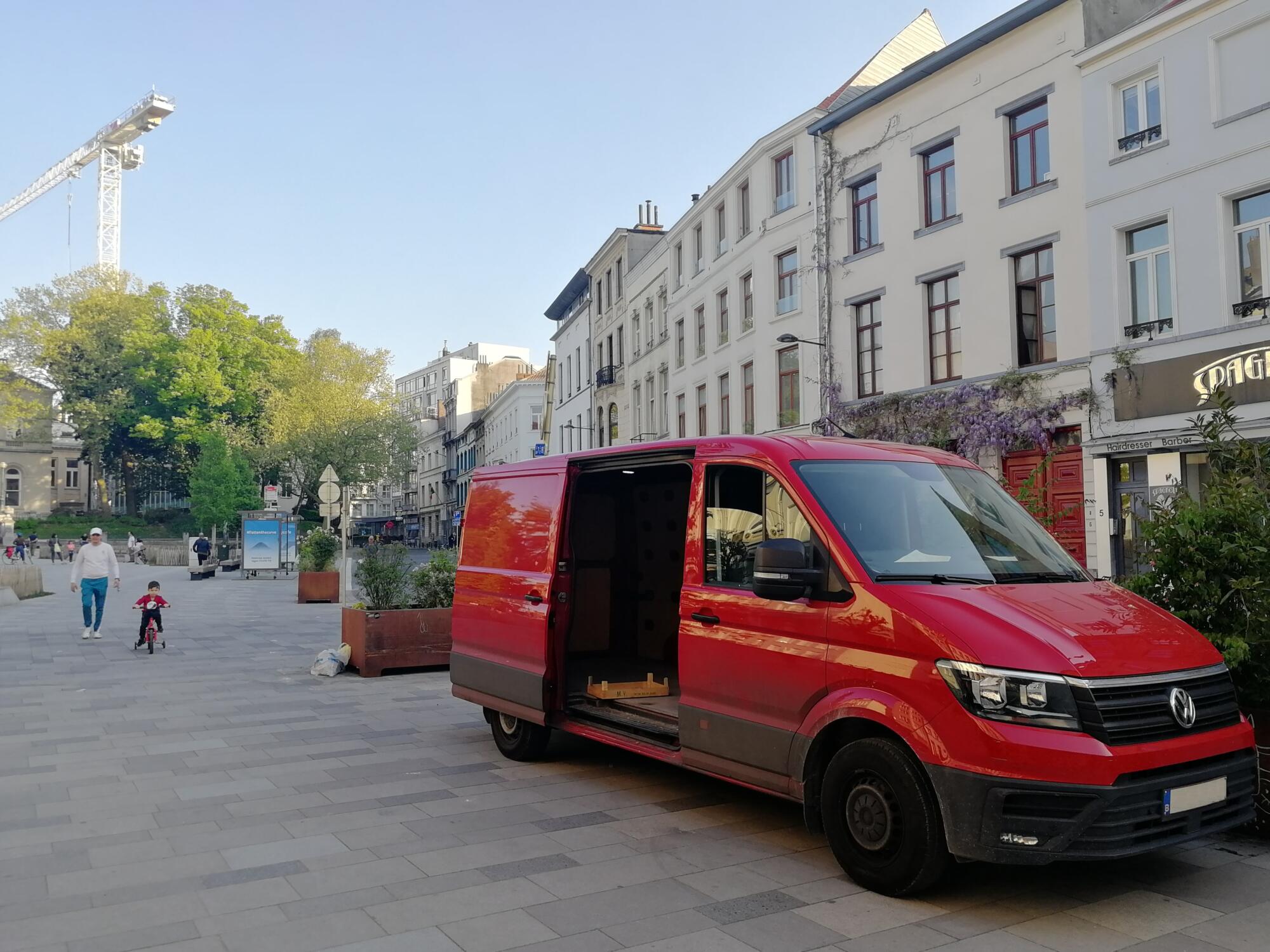Capacity Building
The project develops a series of learning and peer-to-peer activities that are aimed to equip local and national policy makers, practitioners, entrepreneurs, and operators with the skills and knowledge required to develop, implement and operate ZEZ-F. The objective is to raise awareness and establish long-lasting capabilities for all key stakeholders to successfully support the transition to zero emission deliveries.
E-course on Zero-Emission Zones for freight
The e-course aims at raising skills and knowledge related to the development, implementation, and operation of Zero-Emission Zones for Freight (ZEZ-Fs), thus supporting the transition to zero emission deliveries.
The e-course is primarily designed for city and regional authorities but aims to provide a solid knowledge basis for any stakeholder involved in urban freight operations. The course will be openly available to all the public. In addition to lectures and self-study material, a Kick-off Webinar gives key information and guidance about the learning programme and the SURF project. Virtual exchange sessions are scheduled to accompany the course enabling interactive discussions with and among participants.
You can register for the e-course here. Please use the following enrolment key: SURFfreighte-course
The e-course is organized in 3 Units:
- Why ZEZ for freight? The context
- Toward a Successful ZEZ-F: Steps for Action
- Keys to success

Overview
Unit 1: Why ZEZ for freight? The context
1 Current challenges and trends
Climate, air quality, noise pollution, health
Space allocation, equity
2 Getting e-freight right
Context, opportunities and requirements
3 The policy context
E-freight and decarbonisation
The EU policy context
4 Sustainable Urban Logistics Plans
Tool for cities for sustainable and efficient urban logistics planning
Unit 2: Toward a Successful ZEZ-F: Steps for Action
1 Building trust with stakeholders
Inclusive stakeholder engagement and collaboration
Effective communications – clear timelines and predictability
2 Setting objectives and targets
Defining the city’s objectives and regulatory powers
Setting an ambitious but realistic target and timeline
3 Developing an implementation strategy
A new way of viewing freight as a system
Selecting the ZEZ-F location and size
4 Test, implement, enforce
Testing and piloting: Living labs/urban freight labs
Harmonisation for international enforcement and information
Unit 3, 1-19 Nov (3 weeks): Keys to Success
1 Aligning policies across different levels of government
National and regional targets for ZEZ-Fs to succeed
Cross-department collaboration
2 Incentives and other supporting measures
Financial incentives and subsidies
Non-monetary incentives providing a comparative advantage
3 Charging infrastructure for electric freight vehicles
Different charging needs per vehicle and business sector
Managing grid impact
4 Data for freight planning: collect, share and manage data
Usage of data to understand and manage the local freight ecosystem
Definition of shared data model for ZEZ-F
Intro
Welcome statements to the SURF e-course, Jill Duggan
Introduction to the SURF project, Sandra Rothbard
UNIT 1: Why ZEZ for freight? The context
Module 1.1 – Current challenges and trends
Heleen Buldeo Rai
Module 1.2 – Getting e-freight right
Heleen Buldeo Rai
Module 1.3 – The EU policy context
Giacomo Lozzi, Paola Chiarini
Module 1.4 – Sustainable Urban Logistics Plans
Developing a Sustainable Urban Logistics Plans, Elpida Xenou (pt 1)
Developing a Sustainable Urban Logistics Plans, Elpida Xenou (pt 2)
Click here to see the slides for Module 1.4 – Developing a Sustainable Urban Logistics Plan
3 key phases in effective planning for freight and logistics, Eleonora Tu
The city perspective
City of Groningen presenting plans and actions
City of Gothenburg presenting plans and actions
City of Madrid presenting plans and actions
UNIT 2: Toward a Successful ZEZ-F: Steps for Action
Introduction (Giacomo Lozzi, POLIS)
Module 2.1 – Building trust with stakeholders
CILOLAB: the living lab for sustainable city logistics in the Netherlands (Bram Kin, TNO / HAN)
The LEAD project: Communities of Practice (Cristina Cipres, ZLC)
Click here to know more about LEAD: www.lead-project.eu
Module 2.2 – Setting objectives and targets
Dutch National Framework for ZEZ-F, Rosemarie Cramer
Click here to see the slides for Module 2.2
Module 2.3 – Developing an implementation strategy
The ReVeAL project: Regulating Vehicle Access for Improved Liveability, Lucy Sadler
The Last Mile Delivery in Historical Daxi District (Taoyuan), Mr. Jiunn-Ming Chiou
Module 2.4 – Test, implement, enforce
EIT Urban Mobility Report: mobility & logistics Living Labs in Europe, Nina Nesterova (courtesy of SIET2021 conference)
UNIT 3: Keys to Success
Introduction (Giacomo Lozzi, POLIS)
Click here to see the slides for Unit 3 – Introduction. Click here to read the ZEZ-F How to Guide
Module 3.1 – Aligning policies across different levels of government
The NOVELOG project: the case of Emilia-Romagna Region (Giuseppe Luppino, ITL)
Click here to see the slides. Click here to know more about this case study.
Module 3.2 – Incentives and other supporting measures
Accelerating Zero-Emissions Delivery: An innovative approach to transforming the last mile (Aileen Nowlan, EDF Business)
Click here to see the slides. Click here to read the EDF report Accelerating Zero-Emissions Delivery: An innovative approach to transforming the last mile.
Module 3.3 – Charging infrastructure for electric freight vehicles
Charging Infrastructure for Heavy-Duty Vehicles & the Alternative Fuel Infrastructure Regulation (Lucien Mathieu, T&E)
Click here to see the slides for Module 3.3. Click here to read the T&E reports on Unlocking electric trucking in the EU: recharging in cities and recharging along highways.
Module 3.4 – Data for freight planning: collect, share and manage data
True reach of the London Clean Air Zone, (Gregory Slater, Envirnomental Defense Fund)
Click here to see the slides for Module 3.4.